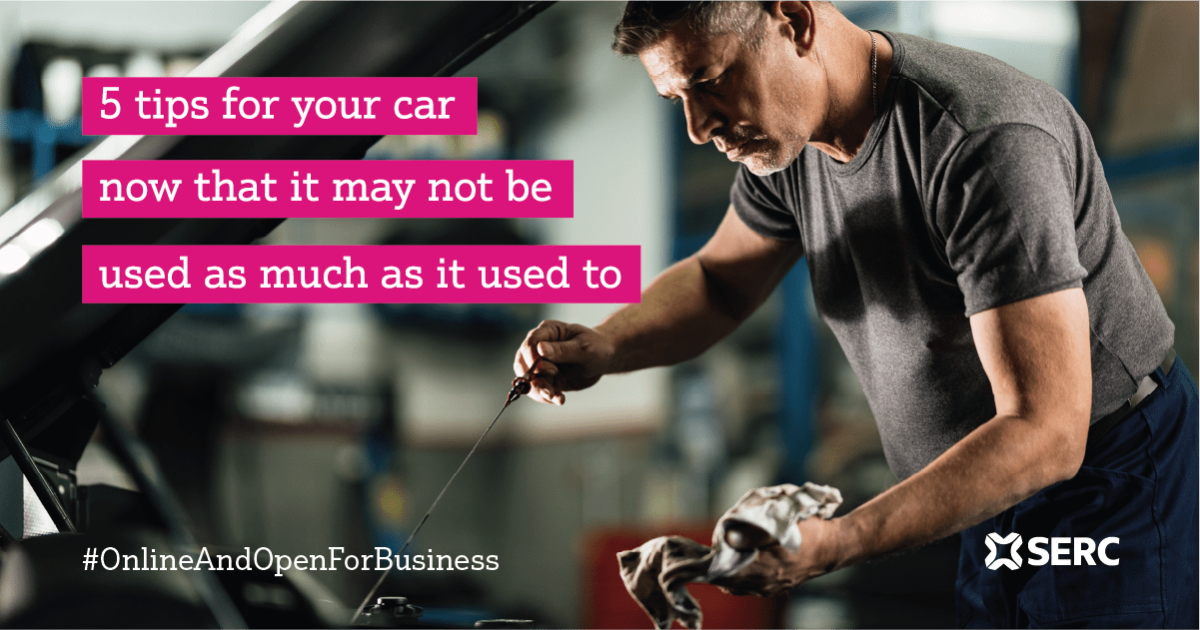5 Tips for Your Car
0 min read
09 April 2020

For many of us, our cars haven’t moved much if at all over these last few weeks. Alan Kerr Lecturer in Motor Vehicle Maintenance at South Eastern Regional College has listed a few different tips for what you can do to keep your car good at this time.
1) Battery
Firstly, I would have to advise of keeping check on the vehicles Battery. During extended periods of layup, the vehicles battery is being drained by electronic systems within the vehicle even though the vehicle is switched off. Normally the battery is recharged whilst the vehicle is being driven. However, If driving is not taking place the battery will eventually reach a point where it will no longer have enough charge to be able to start the engine. Batteries are actually a big seller at the moment because the current situation is highlighting defective batteries. If possible, charge your battery with a trickle charger once per week.
2) Tyres.
During periods of extended non-use, it is highly recommended to periodically check that the Tyre pressures are within manufacturers specs. Usually this information can be found in the vehicle’s handbook, on one of the door pillars when the door is open (normally Drivers) or on the inside of the fuel filler flap. On top of that it would also be advisable to move the vehicle forwards or back a short distance once a week to ensure the same part of the tyre is not always in contact with the road surface. This will prevent deformation of the tyre. (Once per week)
3) Brakes
If left parked up with the handbrake or electric parking brake applied for extended periods the brake pads may stick to the brake discs and render the vehicle unmovable. The best thing that we can do under the current circumstances is to periodically go to the vehicle, start it up, release parking brake and move it forward or back a short distance to keep the brakes from sticking. (Once per Week)
4) Fuel Tank
Vehicles (especially diesel) that are being stored or kept without being driven are best kept with a full fuel tank of fuel. Fuel tanks on vehicles that are less than full will gather water from the moisture in the air that is there. However, this would really take a long period of time and vehicles with metal tanks are more susceptible. (Keep tank as full as possible).
5) Clean Vehicle
Even though the vehicle is not being used it still needs to be washed and cleaned. Dust, dirt and bird droppings will still fall onto the external bodywork and if not washed regularly could cause permanent defects. The vehicle interior will need periodic airing so that it does not go mouldy which will happen if the passenger compartment is kept sealed. Moisture from the air will condense with changes in temperature and dampen seats and trim promoting growth of mould. Leather interiors are very susceptible to this and it will destroy them. Periodic cleaning, airing and heating/ dehumidification of the interior will keep it in good condition.
In summary vehicles are designed to be in everyday use. Sitting about does a vehicle more harm than everyday driving. It can’t be advised to take your vehicle for a drive during the current situation. However, a regular drive is exactly what it needs to keep most of the above correct.
Hybrids/Electric Vehicles Whilst most of the above applies to both these categories of vehicle the Fully Electric Vehicles will fare out best due to the nature of how they function and should therefore be able to withstand extended periods of layup better. However, they will still be subject to all of the above maintenance checks except the fuel level. Hybrids should be considered exactly the same in terms of layup maintenance as a normal vehicle. However, there will be a tendency to run the 12v battery down quicker.
Apply now for courses commencing September 2020. Visit www.serc.ac.uk to find out how you could be #BetterOffAtSERC
Page Tags
SERCLatest News
Keep up with the latest from SERC



